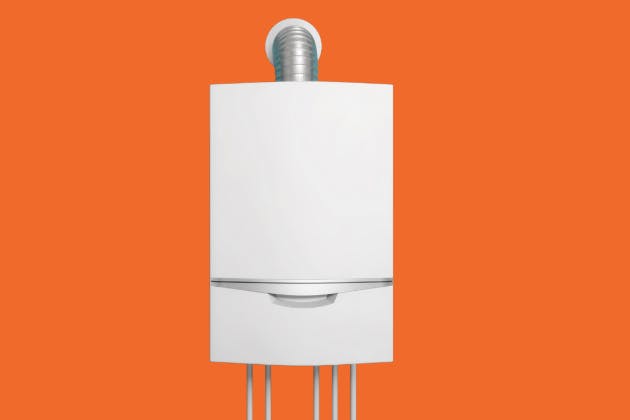Boilers, like other appliances, have a limited lifespan. They have several moving parts, which are necessary for them to heat water as needed. However, as these appliances get older, they might become unreliable and inefficient, requiring a replacement. You can begin to start thinking about this sooner rather than later and there are a few considerations you need to make.
Factors to consider before getting your boiler replaced
Assess Your Boiler's Efficiency
One of the primary considerations when replacing your boiler is its efficiency rating. Newer models are often more energy-efficient, leading to lower utility bills and reduced environmental impact. Look for boilers with high Annual Fuel Utilization Efficiency (AFUE) ratings to maximize energy savings.
Evaluate Your Heating Needs
Before selecting a new boiler, assess your home's heating requirements. Factors such as the size of your home, number of occupants, insulation, and climate all influence the type and size of boiler needed. Consulting with a heating professional can help determine the most suitable option for your specific needs.
Consider Fuel Options
Boilers are available in various fuel options, including natural gas, propane, oil, and electric. Each fuel type has its advantages and considerations regarding availability, cost, and environmental impact. Choose a fuel option that aligns with your preferences and local infrastructure.
Budget and Cost Considerations
Replacing a boiler is a significant investment, so it's essential to establish a budget and consider all associated costs. In addition to the upfront purchase price, factor in installation fees, potential upgrades, and long-term maintenance expenses. Compare quotes from multiple contractors to ensure you get the best value for your money.
Think About Long-Term Savings
While upfront costs are important, don't overlook the potential long-term savings associated with a high-efficiency boiler. Energy-efficient models may qualify for rebates, tax incentives, or lower insurance premiums, helping offset initial expenses and providing ongoing savings throughout the boiler's lifespan.
Explore Renewable Energy Options
For environmentally conscious homeowners, exploring renewable energy options for heating, such as solar thermal or geothermal systems, can be worth considering. While these systems may have higher upfront costs, they offer long-term benefits in terms of energy savings and reduced carbon footprint.
Assess Installation Requirements
Before purchasing a new boiler, consider the installation requirements and compatibility with your existing heating system. Determine whether any modifications or upgrades are necessary to ensure seamless integration and optimal performance. Hiring a qualified HVAC professional for installation is crucial to avoid potential issues and ensure safety.

Boiler Replacement FAQs
Considering a boiler replacement? Here are five common questions homeowners often ask:
When is it time to replace my boiler?
The age of the boiler (usually more than 15 years old), irregular heating, growing energy costs, and frequent breakdowns are all indicators that it's time for a replacement. For increased dependability and efficiency, it makes sense to think about replacing your boiler if it is displaying these problems.
What type of boiler should I choose?
The ideal kind of boiler will vary depending on your home's size, heating requirements, and desired level of energy efficiency. Conventional boilers, combi boilers (combination boilers), and system boilers are typical choices. The best kind for your house may be determined by speaking with a heating specialist.
How long does boiler replacement take?
The length of a boiler replacement project varies according to the type of boiler, installation difficulty, and any required alterations to the current infrastructure. Generally speaking, a simple replacement could take one to three days, but more involved installations might take longer.
What are the costs involved in boiler replacement?
The type of boiler, its size, the installation requirements, and any extra upgrades or modifications required all affect how much a boiler replacement will cost. To obtain precise quotations that are customised to your unique situation, you must make quote requests from respectable HVAC specialists
Are there any rebates or incentives available for boiler replacement?
Rebates, incentives, and financing options are provided by numerous government agencies and utility companies to promote energy-efficient upgrades, such as boiler replacements. To learn more about any available programmes that might help defray the cost of replacing your boiler, visit the website of your local government or utility provider.
Speak to a heating engineer
Our qualified and highly experienced heating engineers are available across Bolton, Bury and Burnley. You can get in touch by calling our team on 07791 20802791 and we'll be happy to help with any boiler installation services that you may require.


